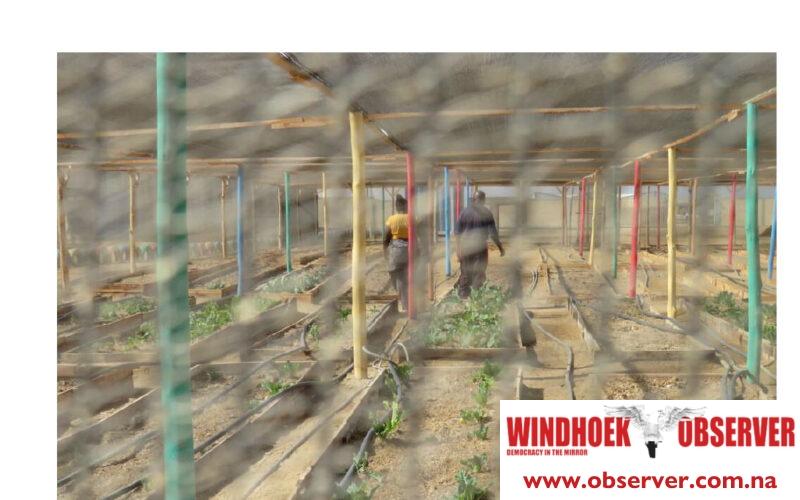Niël Terblanché
The persistent drought in the Omaheke region has left farmers in desperate conditions, with sporadic rainfall failing to sustain agriculture and livestock.
Calle Schlettwein, the minister of agriculture, water and land reform visited the region last week at the invitation of Governor Pijoo Nganate to assess the situation and explore possible interventions.
In a series of video clips published by the agriculture ministry, Schlettwein described the conditions as dire, confirming that rainfall patterns have been erratic, with some areas receiving as little as 40 millimetres of rain—barely enough to make a difference.
“Regarding the drought situation, we can see that the rain has been falling very erratically and sporadically. Some localities have had only 40 millimetres, so it is hardly noticeable that it has been raining. Others are slightly better, but it is confirmed that there are desperate situations, and we must look into how we can assist these farmers,” he said.
One of the major concerns highlighted by the minister during the visit was the effect of the drought on gardening efforts in communal areas.
Schlettwein visited a garden project in Aminus, where the Ministry of Agriculture and the Deutsche Gesellschaft für Internationale Zusammenarbeit (GIZ) have pledged support. The community-run project, which is vital for local food production, is struggling due to limited access to water and inadequate storage facilities.
“They need a little bit more water to sustain their garden and expand it slightly. There are possibilities to build a borehole and increase that capacity. We also found that the storage capacity is too small to bridge even one day, so we need to look into adding more storage capacity to ensure they do not lose their whole garden if one borehole fails,” he explained.
Beyond emergency relief, the ministry is also looking at long-term solutions to support communal farmers.
Schlettwein disclosed that the government plans to extend the communal area of Aminus by adding two commercial farms to provide more grazing land and improve the livelihoods of local farmers.
He, however, stressed that this expansion must be guided by an understanding of the region’s conditions.
“We are extending the communal area of Aminus by adding two commercial farms, and before doing that, I wanted to familiarise myself with the farms themselves and with the circumstances that the Aminus communal farmers are in, which justify this move to enlarge the communal area,” he said.
According to Schlettwein, the drought in Omaheke stresses the urgent need for sustainable water management solutions and agricultural support.He said the challenge to expand communal farming areas and reinforce existing projects to ensure that farmers receive the necessary resources to withstand the harsh climate is difficult but possible.




